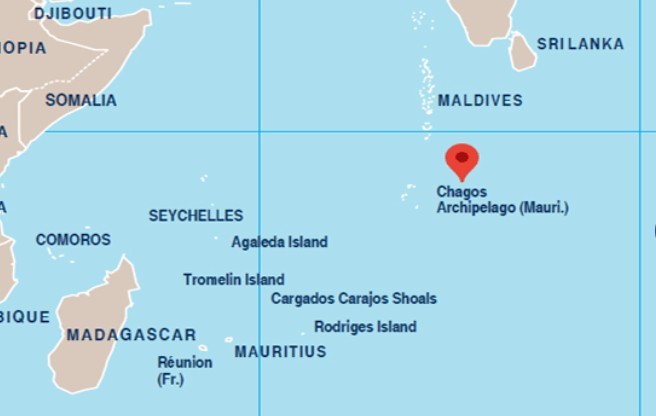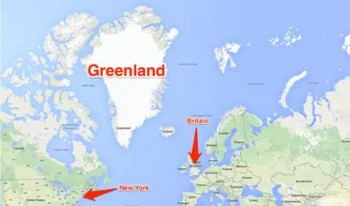What is Holocaust Remembrance Day: Date, History, Significance, and Global Observance
When is International Holocaust Remembrance Day?
Every year on January 27, the anniversary of the 1945 liberation of the Auschwitz-Birkenau concentration camp, people commemorate International Holocaust Remembrance Day. This day was created by the UN General Assembly in 2005 as a worldwide remembrance of the millions of people who perished under the Nazi regime during World War II and the six million Jews who perished in the Holocaust.
This somber day serves as a chance to remember the Holocaust's horrors, pay tribute to its victims, and reaffirm the international community's commitment to ensuring that such tragedies never occur again.
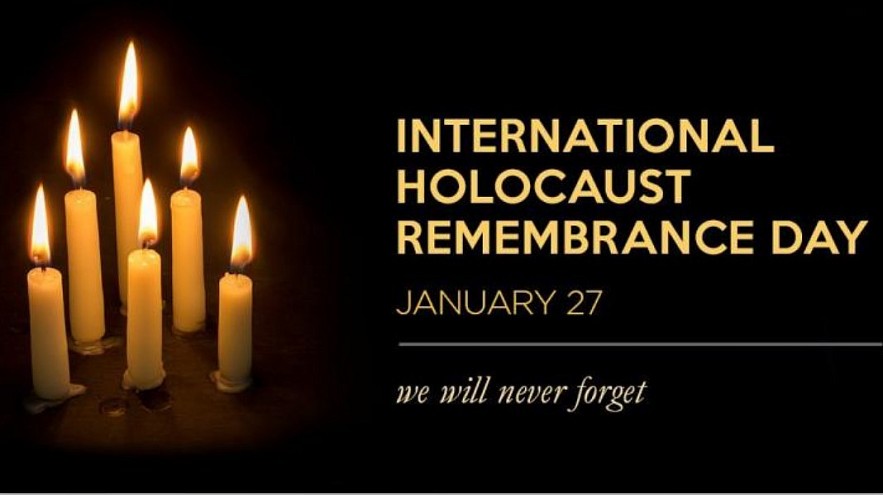 |
| International Day of Commemoration in Memory of the Victims of the Holocaust |
What is International Holocaust Remembrance Day?
International Holocaust Remembrance Day is a day to remember the victims of the Holocaust, also known as the Shoah, which saw the systematic extermination of six million Jews by Nazi Germany between 1941 and 1945. In addition to Jewish victims, other groups targeted by the Nazis included Romani people, disabled individuals, political dissidents, Slavic populations, Jehovah’s Witnesses, and LGBTQ+ individuals.
The Holocaust stands as one of history’s darkest chapters, a reminder of the devastating consequences of unchecked hatred and the dangers of totalitarian regimes. January 27 was chosen as the day of remembrance because it marks the liberation of Auschwitz-Birkenau, the largest Nazi concentration and extermination camp, by Soviet forces.
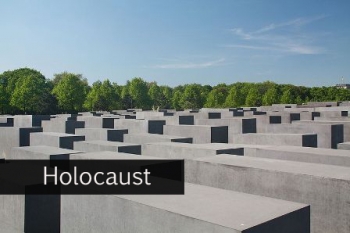 International Holocaust Remembrance Day - History, Theme, Celebration this year International Holocaust Remembrance Day - History, Theme, Celebration this year |
The History of International Holocaust Remembrance Day
Establishment of the Day
The United Nations General Assembly adopted Resolution 60/7 on November 1, 2005, designating January 27 as International Holocaust Remembrance Day. The resolution not only commemorates the victims but also urges member states to develop educational programs to ensure the lessons of the Holocaust are never forgotten.
Holocaust Education and Awareness
The resolution emphasizes the need to promote Holocaust education globally to prevent future acts of genocide. It also condemns denial of the Holocaust and calls for the preservation of historical sites, such as concentration camps, to serve as reminders of the atrocities.
Before the UN designation, Holocaust remembrance was already observed in various countries. For example, Israel's Yom HaShoah (Holocaust Memorial Day) has been observed since the 1950s, while countries like Germany, Poland, and Hungary have their own national days of remembrance.
Activities and Commemorations
International Holocaust Remembrance Day is marked by a variety of events and activities designed to honor the victims and educate the public about the Holocaust. These include:
1. Ceremonies and Memorial Services
Memorial ceremonies are held at Holocaust memorials, museums, and historical sites around the world. Survivors, their descendants, and public figures often give speeches, while moments of silence or candlelight vigils honor those who perished.
2. Educational Initiatives
Schools, universities, and cultural institutions organize educational programs such as lectures, exhibitions, and workshops to raise awareness about the Holocaust. These programs often include survivor testimonies, documentary screenings, and discussions on topics such as anti-Semitism, human rights, and the dangers of prejudice.
3. Candle-Lighting and Name-Reading Ceremonies
Lighting candles and reading the names of Holocaust victims are common practices, offering a personal and poignant way to remember those who were lost.
4. UN Observances
The United Nations hosts an annual commemoration at its headquarters in New York City, featuring speeches by Holocaust survivors, UN officials, and global leaders. Similar events are held at UN offices around the world.
5. Cultural and Artistic Tributes
Plays, concerts, and art exhibitions inspired by the Holocaust are often showcased. These cultural expressions help convey the emotional weight of the Holocaust and ensure its stories remain alive.
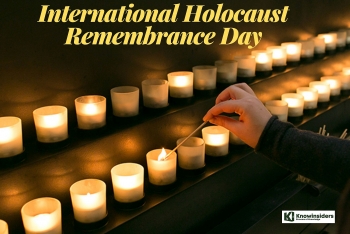 International Holocaust Remembrance Day: Date, Celebration, History International Holocaust Remembrance Day: Date, Celebration, History |
Countries Observing International Holocaust Remembrance Day
International Holocaust Remembrance Day is recognized and observed by countries worldwide. While its origins lie with the United Nations, many individual nations have incorporated the day into their own commemorative calendars. Some notable examples include:
Germany: As the birthplace of the Nazi regime, Germany has extensive commemorations, including public ceremonies and educational programs to confront its history and promote remembrance.
Poland: Home to Auschwitz-Birkenau and other concentration camps, Poland hosts solemn ceremonies at these historical sites, often attended by international dignitaries.
Israel: While Israel has its own Holocaust memorial day (Yom HaShoah), it also recognizes International Holocaust Remembrance Day through educational programs and events.
United States: The U.S. Holocaust Memorial Museum in Washington, D.C., organizes ceremonies and public events, while schools across the country incorporate Holocaust education.
United Kingdom: Holocaust Memorial Day Trust coordinates nationwide events, including the lighting of candles and survivor talks.
Other Nations: Countries such as France, Canada, Italy, Hungary, and Australia also hold significant commemorations, reflecting the global impact of the Holocaust.
The Importance of International Holocaust Remembrance Day
International Holocaust Remembrance Day is a call to action against hatred, racism, and anti-Semitism. By remembering the victims and acknowledging the events of the Holocaust, the day fosters a collective responsibility to ensure such atrocities are never repeated.
Key Lessons
Educating Future Generations: Holocaust education helps younger generations understand the dangers of discrimination and intolerance, promoting a more inclusive society.
Countering Holocaust Denial: In an era of misinformation, remembrance efforts combat denial and distortion of historical facts.
Promoting Human Rights: The day underscores the need to uphold human rights and stand against injustice in all its forms.
Conclusion
International Holocaust Remembrance Day is a dedication to creating a world free from hatred and genocide, not just a time for introspection. The day serves as a reminder of the value of remembering the past in order to create a better future through ceremonies, education, and international solidarity. It serves as a powerful reminder for people to always remember the lessons learned from the Holocaust and to remain vigilant against discrimination and injustice.
Frequently Asked Questions (FAQs)
1. Why is January 27 significant?
January 27 marks the liberation of Auschwitz-Birkenau, the largest Nazi concentration camp, in 1945.
2. What is the purpose of International Holocaust Remembrance Day?
The day honors Holocaust victims, promotes Holocaust education, and encourages vigilance against hatred and genocide.
3. Which countries observe International Holocaust Remembrance Day?
Many countries, including Germany, Poland, Israel, the U.S., the U.K., and Canada, observe the day through various commemorative activities.
4. How can individuals participate in the day?
Individuals can participate by attending memorial events, lighting candles, learning about the Holocaust, or supporting organizations that combat hate.
5. What are some notable Holocaust memorials?
Prominent memorials include Auschwitz-Birkenau in Poland, Yad Vashem in Israel, the U.S. Holocaust Memorial Museum, and the Memorial to the Murdered Jews of Europe in Berlin.
Through collective remembrance and education, International Holocaust Remembrance Day ensures that the lessons of the past remain a beacon for humanity’s future.
 U.S. Calendar in February 2025: List of Federal Holidays, Special Days, and International Events U.S. Calendar in February 2025: List of Federal Holidays, Special Days, and International Events February 2025 is a month filled with significant federal holidays, special observances, and international events. From honoring presidents to celebrating cultural and global milestones, this ... |
 U.K. Calendar in February 2025: List of Bank Holidays, Special Days, and International Events U.K. Calendar in February 2025: List of Bank Holidays, Special Days, and International Events February 2025 in the United Kingdom offers a mix of cultural observances, notable international events, and seasonal traditions. This guide highlights key dates and celebrations ... |
 Canada Calendar in February 2025: List of Public Holidays, Special Days, and International Events Canada Calendar in February 2025: List of Public Holidays, Special Days, and International Events February 2025 in Canada offers a blend of cultural celebrations, notable public holidays, and global observances. From Family Day to international events like World Cancer ... |
 Australia Calendar in February 2025: List of Public Holidays, Special Days, and International Events Australia Calendar in February 2025: List of Public Holidays, Special Days, and International Events February 2025 in Australia is packed with cultural celebrations, iconic events, and international observances. From local traditions like Sydney’s Mardi Gras to global awareness days, ... |




